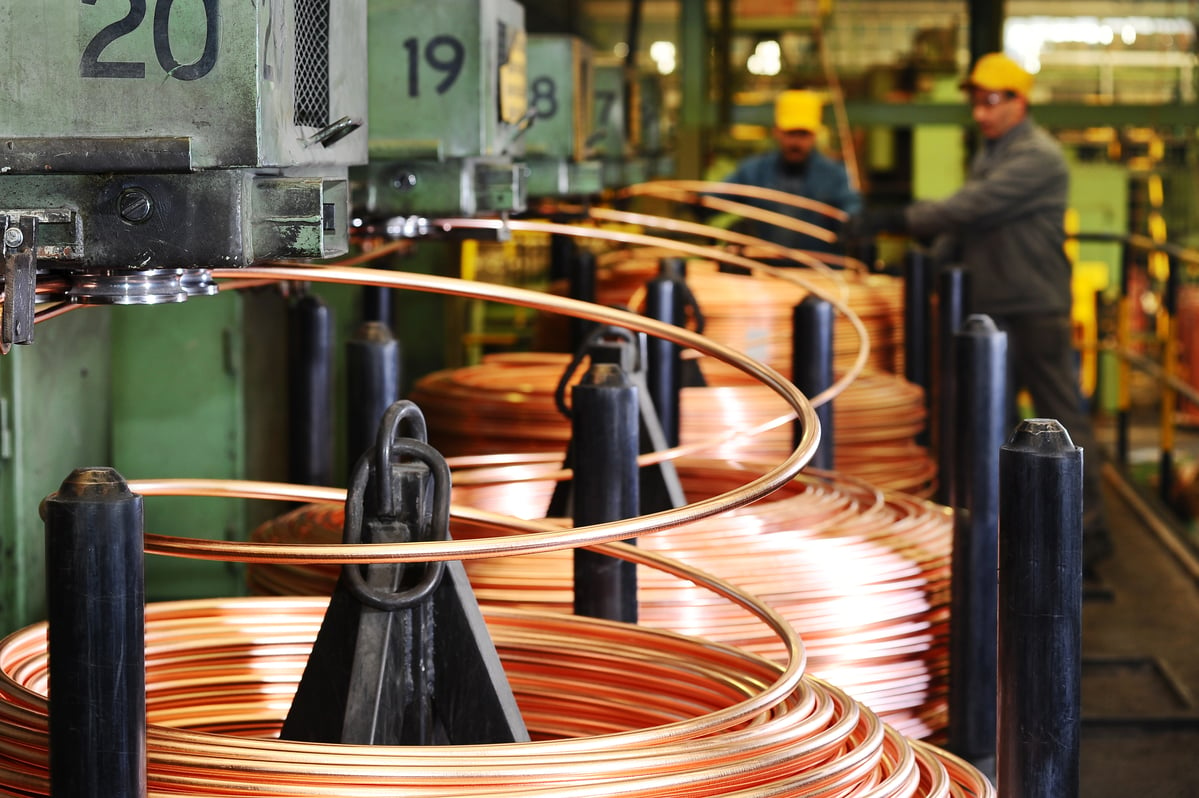Obviously any discussion of Freeport-McMoRan Copper & Gold (FCX 4.35%) will need to account for its far-flung mining operations, but it may be that oil and gas comes to define its future.
Earnings this past quarter benefited from higher production levels and saw copper and gold sales increase from the year ago period, a low period that was marred by labor unrest at its Grasberg mine, the world's largest gold mine and largest recoverable copper reserve.
Copper sales rose 18% over the year-ago period while gold sales were 91% higher. Molybdenum sales were up, too. At the same time, however, Freeport-McMoRan was able to lower costs to $1.54 per pound of copper and expects to reduce them further, believing that it can exit 2013 with cash costs of just $1.35 per pound of copper.
Yet copper and gold aren't getting any easier to mine, even absent labor unrest. Resource nationalization is a growing problem for miners everywhere as governments seek to reset the needle on deals they previously negotiated. Freeport ran into that problem in Indonesia where the government wanted to renegotiate its long-term contracts, and Rio Tinto (RIO +0.06%) is mulling whether to suspend its Mongolian copper and gold operations to protest that government's demand for a greater share of the profits.
Asset diversification could be what gives Freeport its next growth catalyst, one with somewhat lower risks, and it helps explain the decision to buy two oil and gas drillers, Plains Exploration (NYSE: PXP) and McMoRan Exploration (NYSE: MMR), for $20 billion, including debt.
Investors were taken aback by this decision, however, because they had bought into a miner not a wildcat oil rig operator, and they dumped Freeport's stock en masse, causing it to lose a fifth of its value. And even if they've warmed up to the idea in the intervening weeks, Freeport remains more than 20% below its 52-week high, and is down 18% over the past year.
Return of the prodigal son
The purchase of McMoRan Exploration represents a homecoming of sorts. Back in the early 1990s, McMoRan's oil assets were actually part of Freeport's fold, but it wanted to focus on its core mining activities, so it spun off the oil and gas driller. Today McMoRan is on the brink of exploiting what may be one of the largest oil finds in decades, a formation locked deep beneath the Gulf of Mexico's salt geology that is suspected of holding huge reserves running to an estimated multitrillion cubic feet.
Although sent off on its own, McMoRan's ties to its former parent remained close. The driller's CEO is also Freeport's chairman, more than half of McMoRan's directors also sit on Freeport's board, and Freeport has an already existing 16% stake in the driller.
Critics of the merger abound because of the very cozy relationship between all three parties (Plains Exploration also owns about a third of McMoRan after a recent asset swap), with the directors who sit on both boards personally reaping a windfall estimated to be worth $130 million. Plains CEO, who is also a McMoRan director, is believed to be getting a cool $12 million himself.
Yet an energy component to its mining operations could lessen the risks Freeport faces as it ramps up its copper production from 3.66 billion pounds last year to an estimated five billion pounds by 2015. Diversifying its asset base away from one mired in political turmoil could provide a catalyst for growth, although oil drilling comes with its own set of issues as the BP oil spill in the Gulf of Mexico demonstrated. But the move into oil by a miner isn't unprecedented because BHP Billiton has successfully straddled the two worlds for years.
At less than eight times earnings estimates, Freeport looks very cheap. Although mining will still represent three quarters of its business with copper comprising the lion's share of that, it's undeniable that if McMoRan succeeds in the Gulf of Mexico the dynamics of this company will change markedly. For that reason, I find Freeport-McMoRan a good value as both a resources and an energy play.







